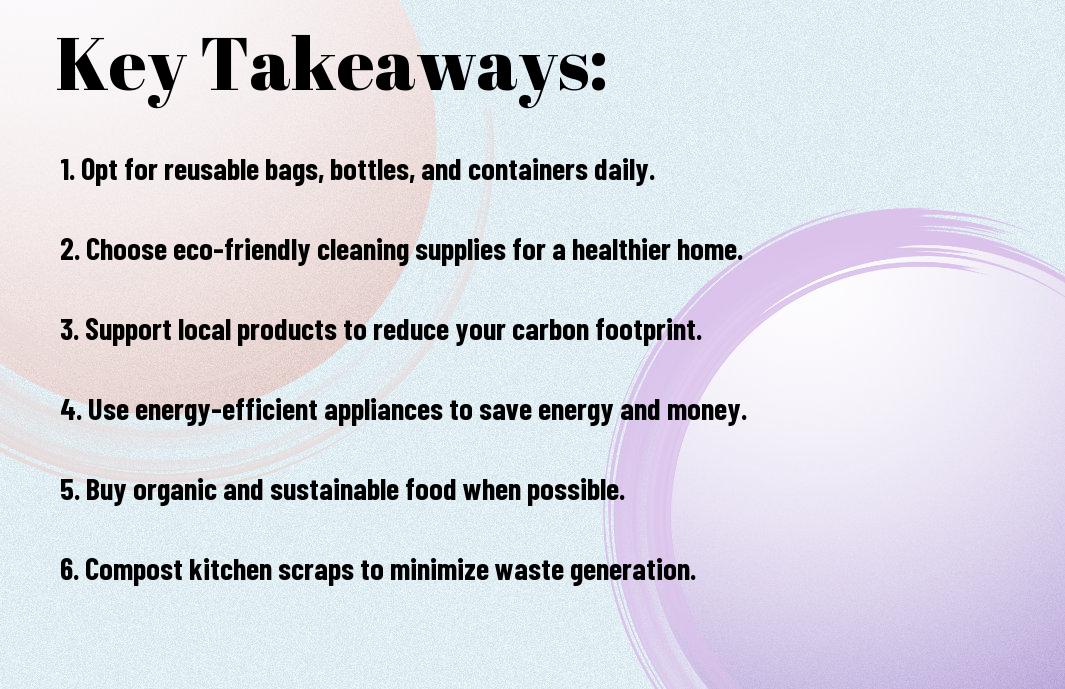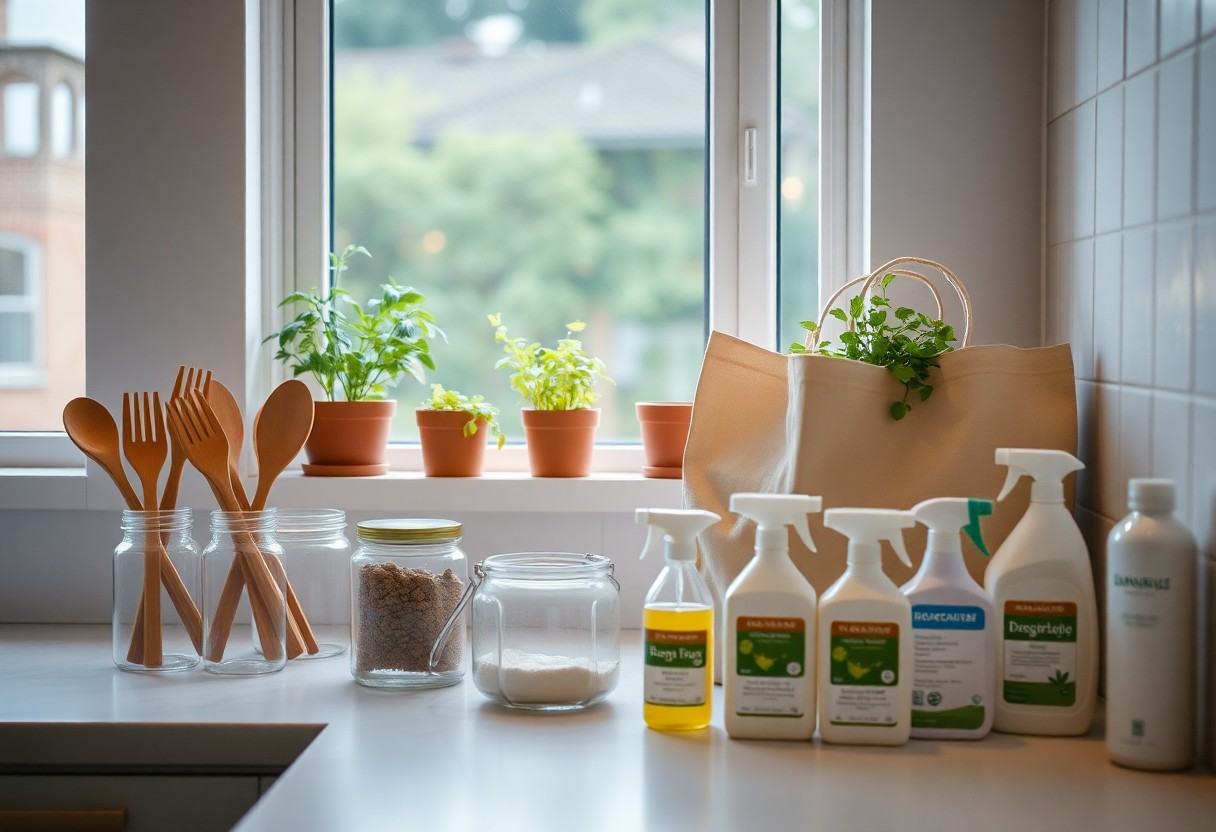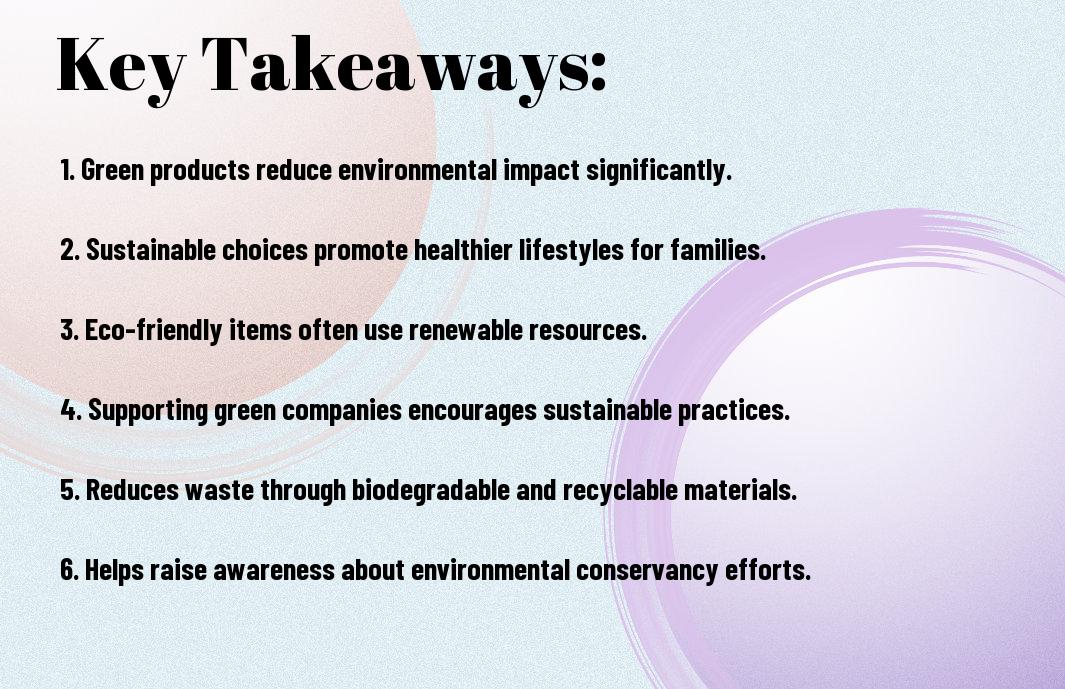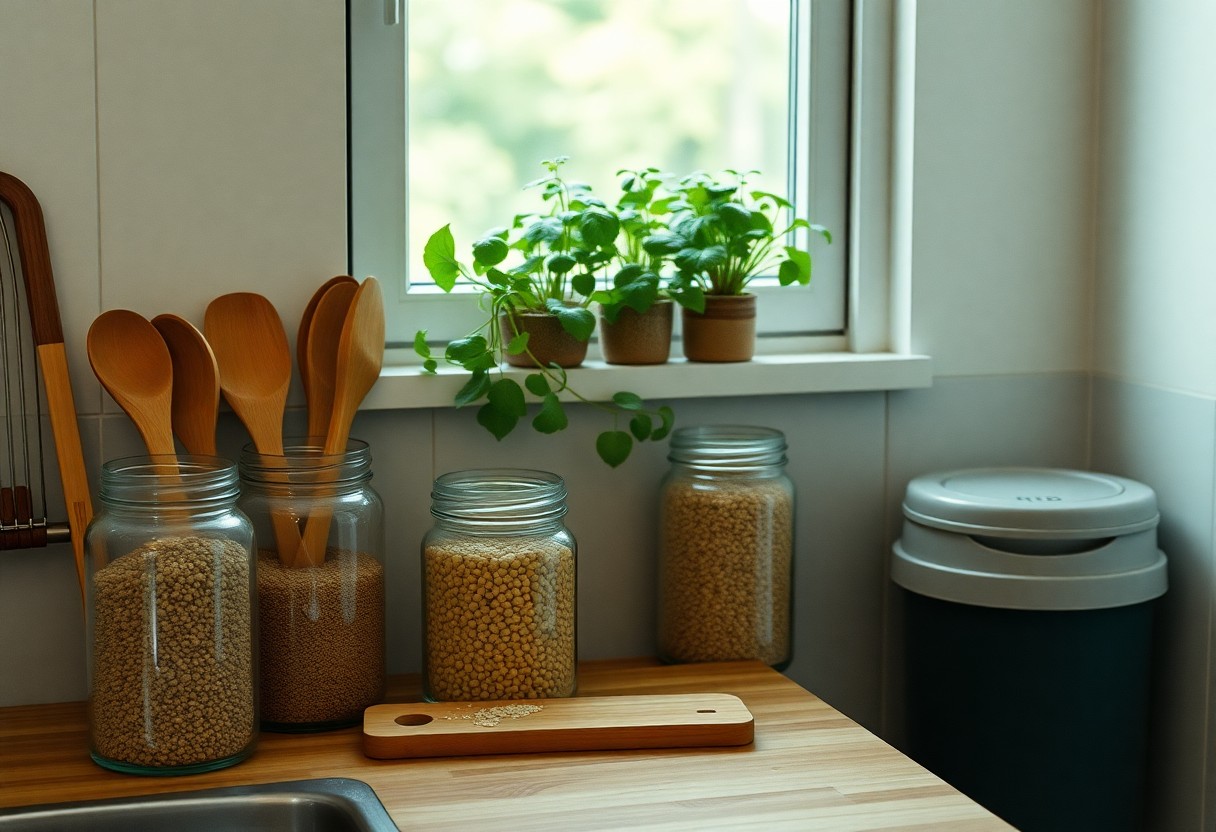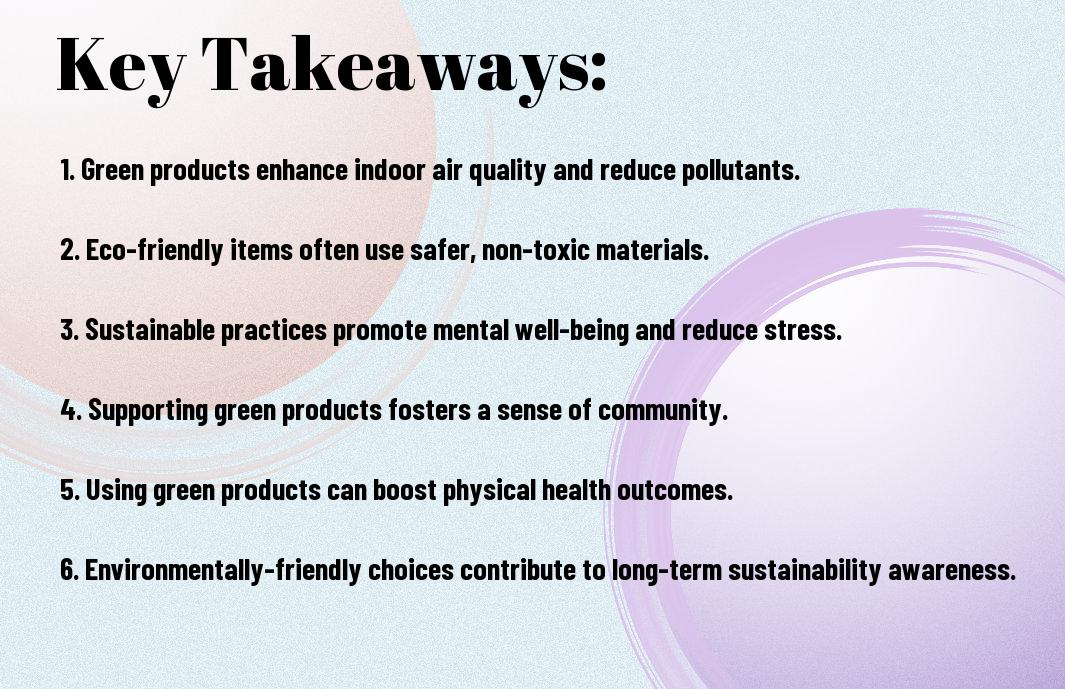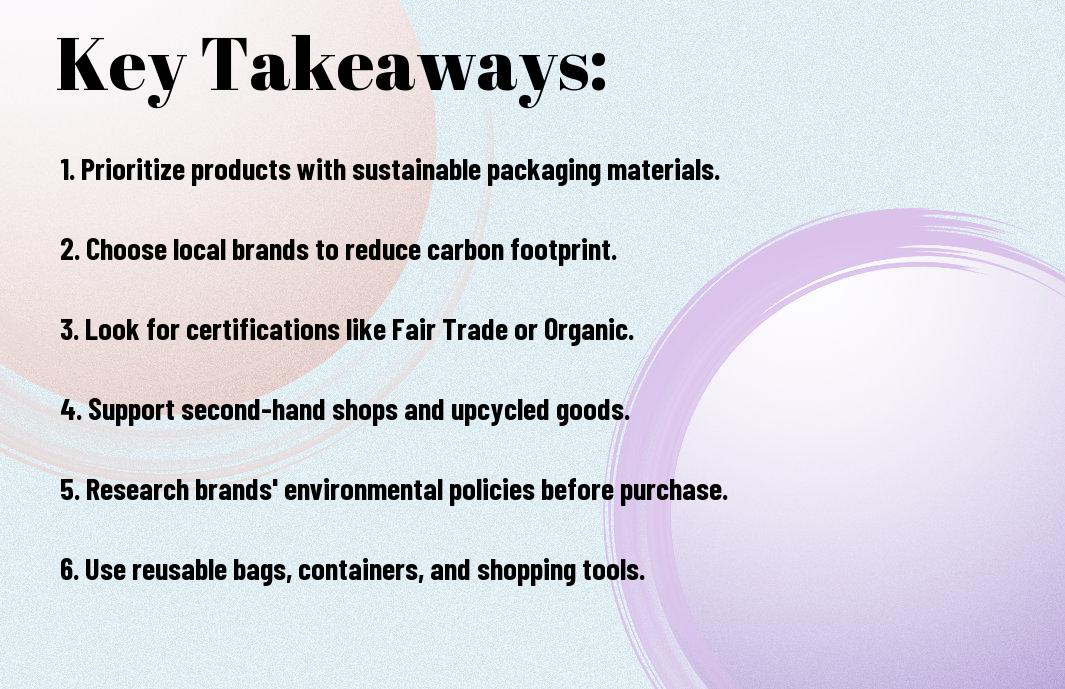As you commence on your zero-waste journey, you’ll find that making a few simple swaps in your daily routine can have a significant impact on your environmental footprint. You’re likely looking for ways to reduce your waste, and your first step is to identify the right products to help you get started. Your goal is to live more sustainably, and investing in the right tools will make it easier for you to make eco-friendly choices and set yourself up for success.
Key Takeaways:
To get started with a zero-waste lifestyle, here are some crucial products for beginners:
- Invest in reusable bags and containers to reduce single-use plastics and make grocery shopping more sustainable.
- Switch to refillable water bottles and coffee cups to minimize waste and reduce your environmental footprint.
- Use biodegradable or compostable products, such as bamboo toothbrushes and beeswax wraps, to replace traditional plastic items and promote a greener lifestyle.
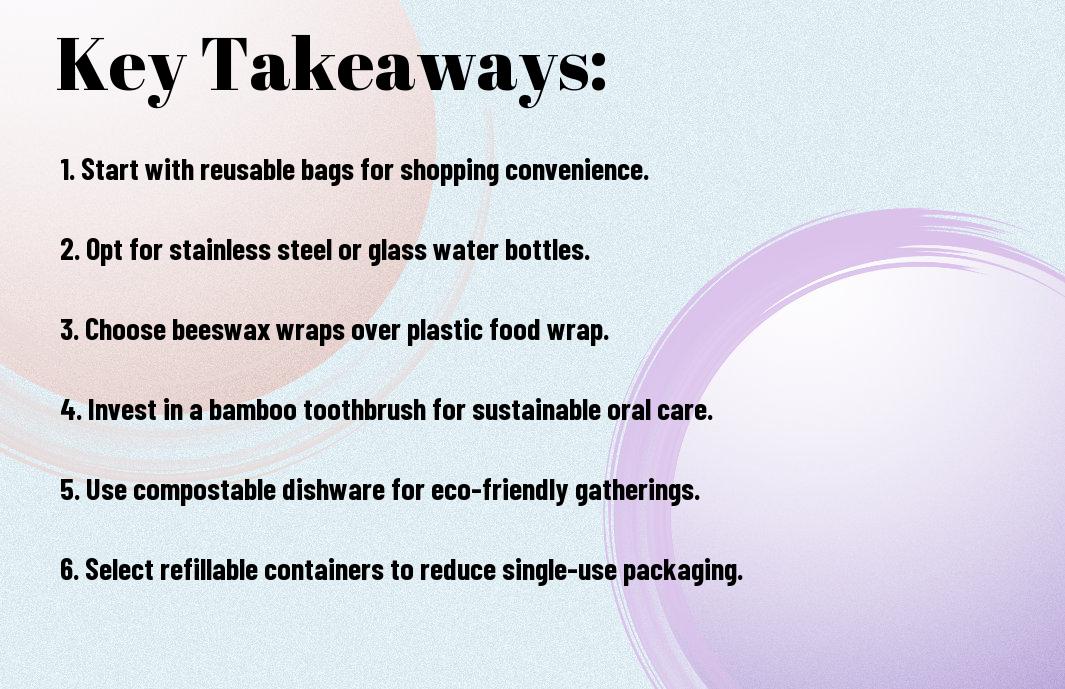
Essential Zero-Waste Products
While starting your zero-waste journey, it’s important to invest in products that will help you reduce your waste significantly. You’ll find that making a few simple changes to your daily routine can have a big impact on the environment.
Reusable Water Bottles
Taking a step towards a sustainable lifestyle, you can begin by replacing single-use water bottles with reusable ones, which will help decrease plastic waste and save you money in the long run, as you will be using your bottle repeatedly.
Beeswax Wraps
Beside reusable bags and containers, beeswax wraps are another vital product for reducing waste in your kitchen, as they can be used to cover bowls, wrap snacks, and store food, making them a great alternative to plastic wrap.
Essential to your zero-waste kitchen, beeswax wraps are a natural, reusable, and biodegradable way to store food, keeping it fresh for a longer period, and you can make your own beeswax wraps at home using beeswax, jojoba oil, and cotton cloth, or purchase them from a sustainable supplier, allowing you to customize them to fit your needs and preferences.
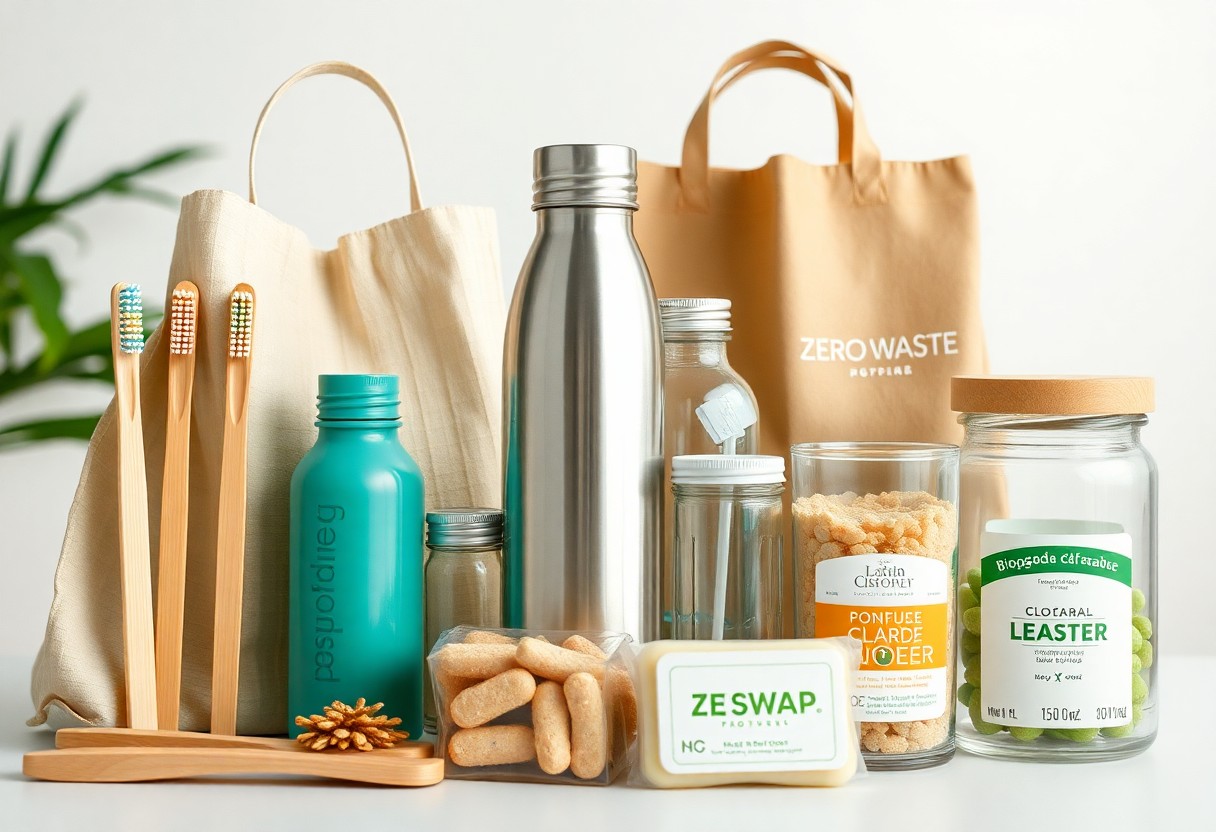
Personal Care
Any transition to a zero-waste lifestyle starts with small changes, and your personal care routine is a great place to begin, as you can swap out traditional products for more sustainable options.
Bamboo Toothbrushes
Prior to making the switch, you may not have considered the environmental impact of your toothbrush, but choosing a bamboo toothbrush is a simple and effective way to reduce your plastic use, as you can replace your old toothbrush with a biodegradable alternative.
Refillable Soap Dispensers
Similarly, soap is a staple in your daily routine, and using refillable soap dispensers can significantly reduce your waste, as you can refill them with your preferred soap, eliminating the need for single-use plastic bottles.
Further, by using refillable soap dispensers, you not only reduce plastic waste but also have the flexibility to choose from a variety of soap options, allowing you to select the best one for your skin type, and you can even make your own soap at home, giving you full control over the ingredients used.
Kitchen Essentials
After making the decision to adopt a zero-waste lifestyle, you’ll want to start by swapping out some of your kitchen staples. You can begin by replacing disposable products with reusable alternatives, which will significantly reduce your waste output. This simple change will have a significant impact on your overall waste reduction goals.
Stainless Steel Straws
Alongside other eco-friendly products, stainless steel straws are a great addition to your kitchen, allowing you to enjoy your favorite beverages without generating waste. You can take them with you on-the-go, and they are easy to clean and maintain, making them a convenient option for your daily life.
Cloth Napkins
Around the same time you start using stainless steel straws, you can also introduce cloth napkins into your daily routine. You will find that they are a simple yet effective way to reduce paper waste, and they can be washed and reused multiple times, making them a cost-effective option for your household.
Due to their durability and reusability, cloth napkins are an excellent choice for your kitchen. You can use them for drying hands, wiping up spills, and cleaning messes, making them a versatile product that will help you achieve your zero-waste goals. As you continue to use them, you’ll notice a significant reduction in your paper waste, and you’ll be taking a significant step towards creating a more sustainable kitchen environment for yourself.
Home and Cleaning
Your home is a great place to start reducing waste, and it can be as simple as swapping out a few products in your cleaning routine to make a significant impact.
Microfiber Cloths
Around the house, you can use microfiber cloths to clean surfaces, reducing your reliance on paper towels and disposable wipes, and they can be washed and reused multiple times.
Concentrated Cleaning Products
Against the tide of single-use cleaning products, you can opt for concentrated cleaning products that come in reusable containers, reducing packaging waste and minimizing your environmental footprint.
And as you explore concentrated cleaning products, you’ll find that they often require only a small amount to be effective, making them a cost-effective and sustainable choice for your cleaning needs, allowing you to customize the amount of product you use, and reducing waste even further.
Lifestyle Adjustments
To make a significant impact on reducing waste, you’ll need to consider changes in your daily habits and routines. This involves adopting new practices that promote sustainability and minimize your environmental footprint.
Shopping in Bulk
Behind the scenes of zero-waste living lies a well-planned shopping strategy. You can start by purchasing items like grains, nuts, and dried fruits in bulk, reducing your reliance on packaged goods.
Avoiding Single-Use Plastics
For a more sustainable approach, you’ll want to focus on avoiding single-use plastics, such as water bottles, straws, and bags, and opt for reusable alternatives instead. This simple switch can greatly reduce your plastic waste.
Adjustments to your daily choices, such as avoiding single-use plastics, will have a significant impact on the environment. As you continue on your zero-waste journey, you’ll find that these changes become second nature, and you’ll be more mindful of your consumption habits, making more informed choices that benefit both you and the planet.
Getting Started
Despite the overwhelming amount of information on zero-waste living, you can start making changes with small steps. You begin by assessing your daily habits and identifying areas where you can reduce waste. This will help you create a personalized plan and set yourself up for success on your zero-waste journey.
Setting Realistic Goals
After taking stock of your habits, you can set achievable goals for reducing your waste. You should prioritize the changes that will have the greatest impact and create a timeline for implementing them, allowing you to track your progress and stay motivated.
Finding Local Resources
To make your zero-waste journey easier, you will need to find resources in your community. You can start by searching online for local recycling centers, thrift stores, and businesses that offer refill options or sell products in bulk, helping you reduce waste and support your community.
Also, exploring your local community will help you discover unique resources that can aid in your zero-waste efforts. You can visit farmers’ markets, join online forums or social media groups, and talk to friends and family to learn more about the resources available to you and get tips on how to use them effectively.
Final Words
From above, you’ve learned about the top zero-waste products for beginners. You can now make informed decisions to reduce your waste. Incorporate these products into your daily life and start your zero-waste journey. You will find that your small changes make a significant impact on the environment, and your new habits will become second nature. With your commitment, you can create a more sustainable future for yourself and your community.
FAQ
Q: What are the benefits of using zero-waste products, especially for beginners?
A: Using zero-waste products offers numerous benefits, including reducing plastic waste, conserving natural resources, and decreasing greenhouse gas emissions. For beginners, adopting zero-waste products can also help develop sustainable habits and raise awareness about the impact of daily choices on the environment. Starting with simple swaps can make a significant difference and encourage a lifestyle change towards greater sustainability.
Q: What are some important zero-waste products for beginners to start with?
A: For those new to zero-waste living, starting with everyday items is a good approach. Essential products include reusable water bottles, cloth bags for grocery shopping, stainless steel or glass containers for food storage, bamboo toothbrushes, and metal or bamboo straws. These items are easy to incorporate into daily life and can significantly reduce single-use plastic waste.
Q: How can beginners effectively transition to using zero-waste personal care products?
A: Transitioning to zero-waste personal care involves exploring products with minimal or biodegradable packaging. Beginners can start by replacing disposable razors with safety razors, using bar soap instead of bottled body wash, and opting for toothpaste tablets or powder. Additionally, choosing personal care products sold in bulk or those that use refillable containers can help minimize waste. It’s also beneficial to make your own products, like face masks or scrubs, using natural ingredients.
Q: What are some zero-waste kitchen products that beginners should consider?
A: In the kitchen, beginners can make a significant impact by adopting a few key zero-waste products. Beeswax wraps or reusable silicone lids can replace plastic wrap for food storage. Stainless steel or cast iron cookware is durable and non-toxic, reducing the need for disposable aluminum foil and parchment paper. Moreover, using a compost bin can turn food scraps into nutrient-rich soil, reducing kitchen waste sent to landfills.
Q: How can I maintain and clean my zero-waste products to ensure they last longer?
A: To ensure zero-waste products last and remain effective, proper maintenance is key. Regularly washing reusable bags, containers, and water bottles with soap and water can prevent bacterial growth. For items like beeswax wraps, avoiding exposure to high heat and using gentle soap for cleaning can extend their lifespan. Drying products thoroughly after use, especially items like bamboo utensils and metal straws, can prevent mold and corrosion. Proper care can significantly extend the life of your zero-waste products, making them a worthwhile investment in your sustainable journey.
